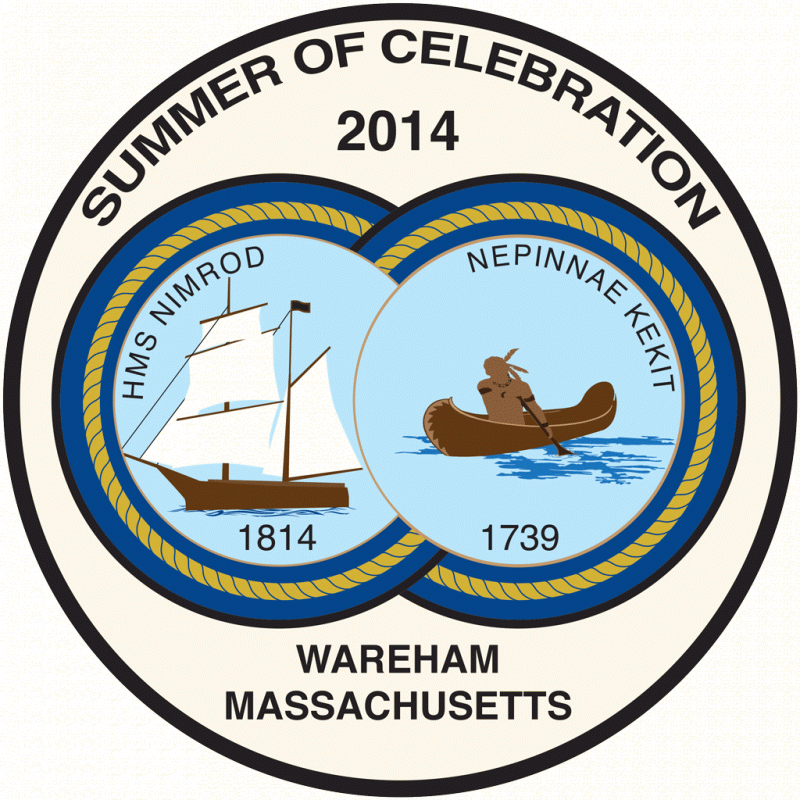DID YOU KNOW?
This week Wareham begins its celebration of the anniversary of its attack by the HMS Nimrod. Did you know that while several historical accounts of this battle exist, they differ slightly in detail? Fortunately, on June 21, 1814, eight days after the attack, a letter was written to U.S. Navy Commodore Oliver Hazard Perry by Wareham citizens, David Nye, Jr., Abner Basset, Isaac Perkins, Josiah Everett, Noble Everett, William Barrows, Perez Briggs, and William Fearing.
The letter reads: “To Commodore Perry, Sir, -- The following is a correct statement when the British landed at this place with their barges the 13th of this inst. [current] June. We, the undersigned, do testify and say, that on the 13th of this inst. June, about 11 o’clock, A.M. we saw the British with six barges approaching this village with a white flag hoisted in one of them at which time our flag was not hoisted, but Thomas Young was carrying it down the street towards the wharf, where it was afterwards hoisted. We the undersigned to further testify and say, that on the landing of the commanding officer from the barge where our flag was hoisted, he the commanding officer did agree that if he was not fired on by the inhabitants: -- he would not destroy any private property belonging to the inhabitants; but he would destroy public property which did not belong to the town and requested one of us to pint out the Falmouth property or vessels, which we agreed to do, and one of us went into the barge with the second in command, and then they took down their flag of truce and proceeded to set fire to the Falmouth vessels. They then landed a part of their men, and in violation of their agreement proceeded to set fire to private property, by setting fire to a vessel on the stocks and five others, which were at anchor, and a Plymouth vessel. They were reminded of their agreement, and that they had taken advantage of us by false promises, but they threatened to set fire to the village and put the inhabitants to the sword if any resistance was made or any attempt made to put out the fires, for they did not care about any promises they had made, also they landed a party of men and set fire to the cotton factory. They then returned to their barges, took twelve of the inhabitants with them on board their barges and said if they were fired upon by the inhabitants they would put them to death. The commanding officer ordered the flag of truce to be hoisted, and the second in command swore it was a damned shame and disgrace to any nation to enter a village under a flag of truce and commit the greatest outrage and depredations possible, and then return under a flag of truce, but on orders being again given by the commanding officer the flag of truce was hoisted. Our men were landed about three miles below the village and the barges proceeded on board the brigantine Nimrod, then lying in the bay” (Quoted in Glimpses of Early Wareham, by Daisy Washburn Lovell).












